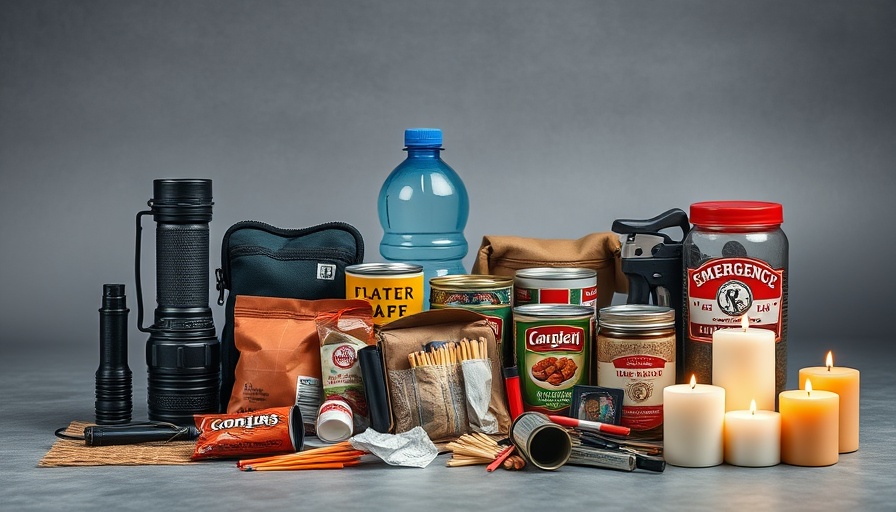
Understanding the Importance of Bartering in Uncertain Times
In today's unpredictable world, bartering emerges as an essential strategy for self-reliance and survival. Historical events demonstrate that when currency falters, as seen during the Great Depression or the recent economic turmoil, having valuable items to trade significantly increases one’s chances of navigating through tough times. With growing concerns over economic stability, it’s vital to be prepared.
What Are the Top Items to Have for Effective Bartering?
To engage effectively in bartering, it’s not only about having items; it’s about having the right items. Precious metals like gold and silver have consistently retained value, proving essential during emergencies. Fuel sources are equally crucial; items like gasoline and propane will be in demand for their role in providing heat, cooking meals, or even transportation.
Moreover, physical protection items such as personal safety kits and non-lethal tools can be bargaining assets in a crisis. Moreover, essential first aid supplies, such as pain medications and band-aids, should top your list. A well-stocked first aid kit can be the difference between safety and distress during emergencies.
Food and Other Supplies That Everyone Needs
When disaster strikes, communities may become isolated, making food a valuable currency. Stockpiling non-perishable food items such as canned goods, pasta, and rice not only prepares you for any emergency but ensures you have surplus to trade. Additionally, comfort foods like coffee and snacks may also hold substantial value among bartering communities, catering to both survival and morale.
The Psychological Benefits of Being Prepared
Preparedness through bartering isn't solely about collecting items; it fosters a mindset of self-sufficiency that can reduce anxiety and promote well-being. Knowing you have the means to trade creates a sense of security. Engaging in bartering also cultivates community spirit, strengthening relationships with neighbors and fellow community members.
Counterarguments: Is Bartering Worth It?
Some may argue that investing in a large array of barter items can be risky due to storage challenges or potential depreciation of goods. However, thoughtful selection of diversified items ensures a steady supply for trade. Furthermore, completing community networks can leverage skills too, enhancing your ability to barter beyond physical goods to services.
Crafting Your Bartering Strategy
The key to effective bartering lies in having a strategic plan. Identifying the needs of your community will direct your efforts on what to stock. Besides tangible items, consider enhancing skill sets like gardening or food preservation. Sharing produce or knowledge during a crisis can elevate mutual aid, making the barter system stronger.
Take Action: Start Your Bartering Collection Today!
Start preparing today by reviewing your current supplies and identifying any gaps. An ounce of prevention is worth a pound of cure. Whether gathering extra coffee or investing in gold, every item can become a crucial piece of your barter puzzle in the future.
Don’t wait until it’s too late—take control of your preparedness strategy now. Begin gathering and learning about the items needed for effective bartering. Cultivate community relationships that will enhance your support network when you need it most.
 Add Row
Add Row  Add
Add 




 Add Row
Add Row  Add
Add 

Write A Comment